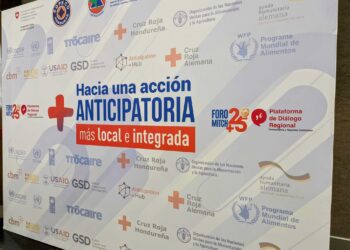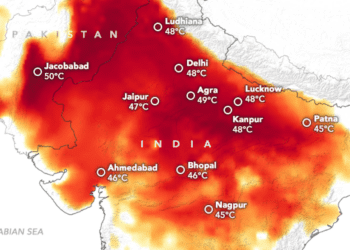About
2023 has seen a new wave of climate extremes and natural disasters, causing disruptions and displacement throughout the world.
New methods for analyzing data on human population dynamics and health impacts during disasters are revealing insights into the pace of change, the scope of humanitarian reactions, and the potential outcomes for at-risk communities.
CrisisReady, a research and response platform at Harvard University, combines data on the changing climate with innovative data utilization to enhance global emergency interventions. By connecting real-time data to analytical breakthroughs and international response teams, CrisisReady aims to redefine the scope of humanitarian action.
On September 28, CrisisReady convened at Harvard University for a panel discussion, delving into our latest projects and their significance in the face of a rapidly changing climate.
Attendees spanned various Harvard schools and departments including the Kennedy School of Public Policy and Government, Harvard Business School, and the Harvard T.H. Chan School of Public Health, among others. We also welcomed those from outside of the university, such as affiliates from MIT, local healthcare professionals, and researchers from various institutions, all keen to understand the transformative role of novel data and emerging reporting technologies in the climate response arena.
We extend our heartfelt gratitude to everyone who joined, and to the CrisisReady team for leading the dialogue.

Harvard University Center for the Environment
Room 429
26 Oxford St, Cambridge, MA 02138
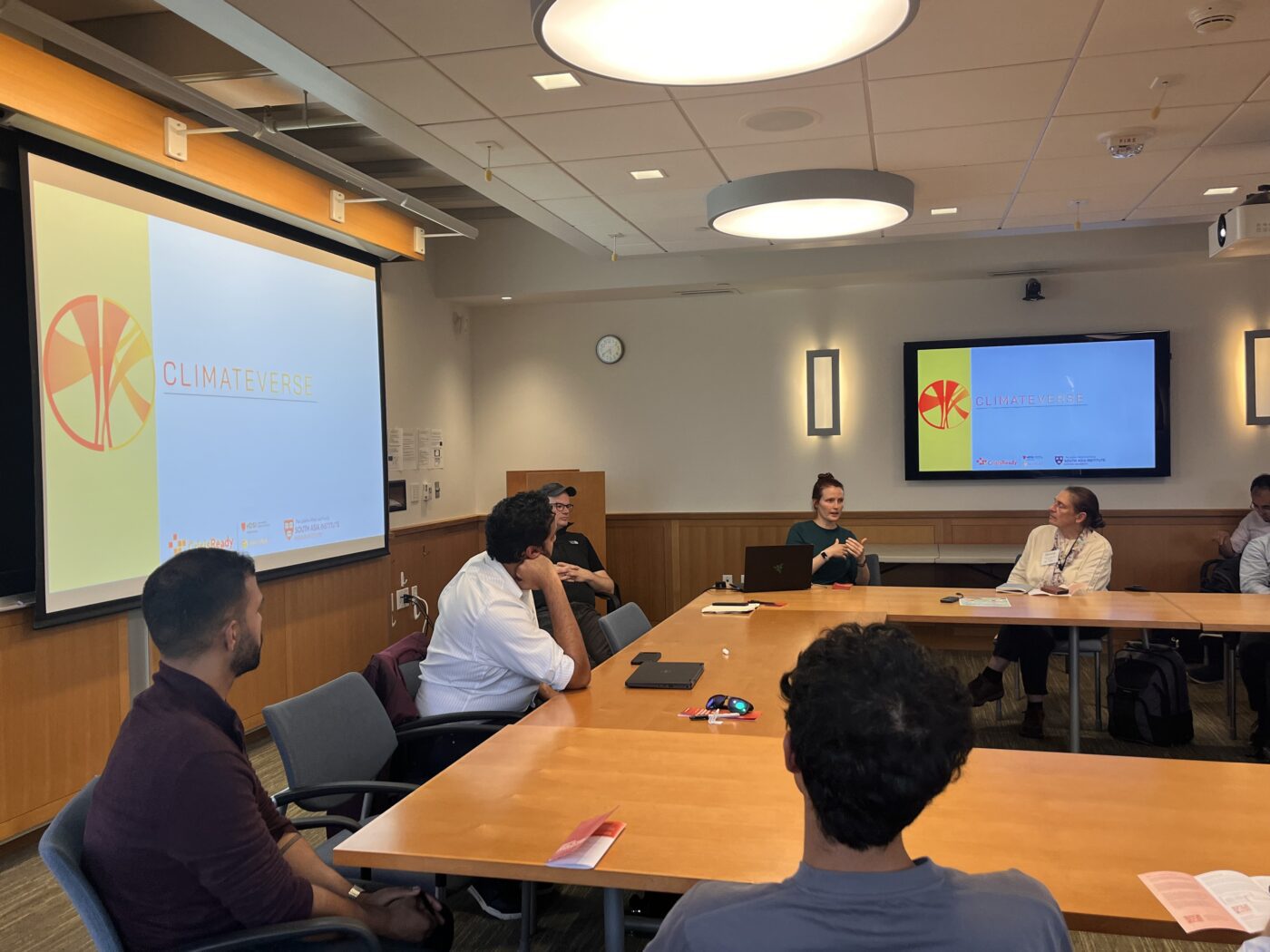
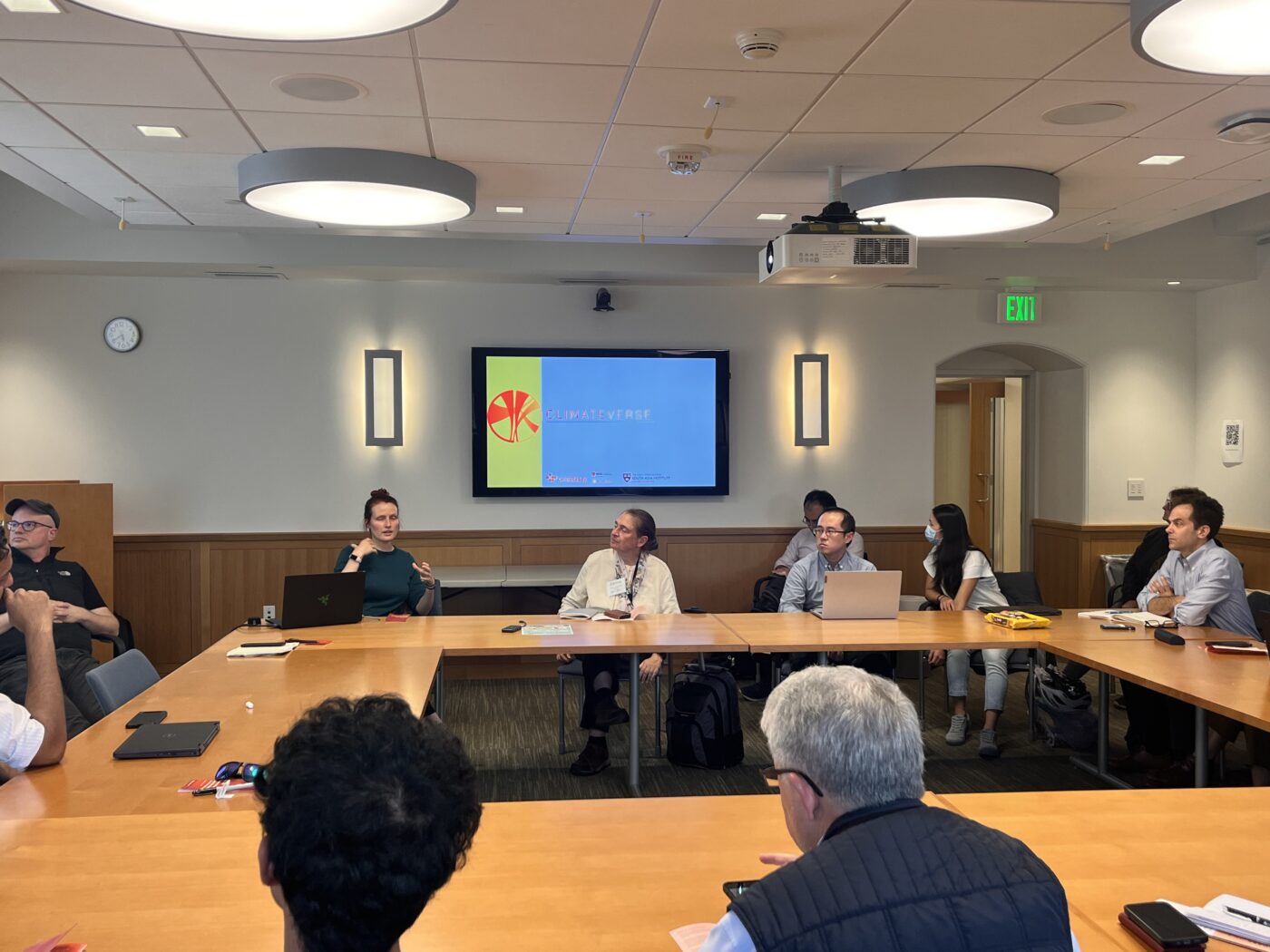
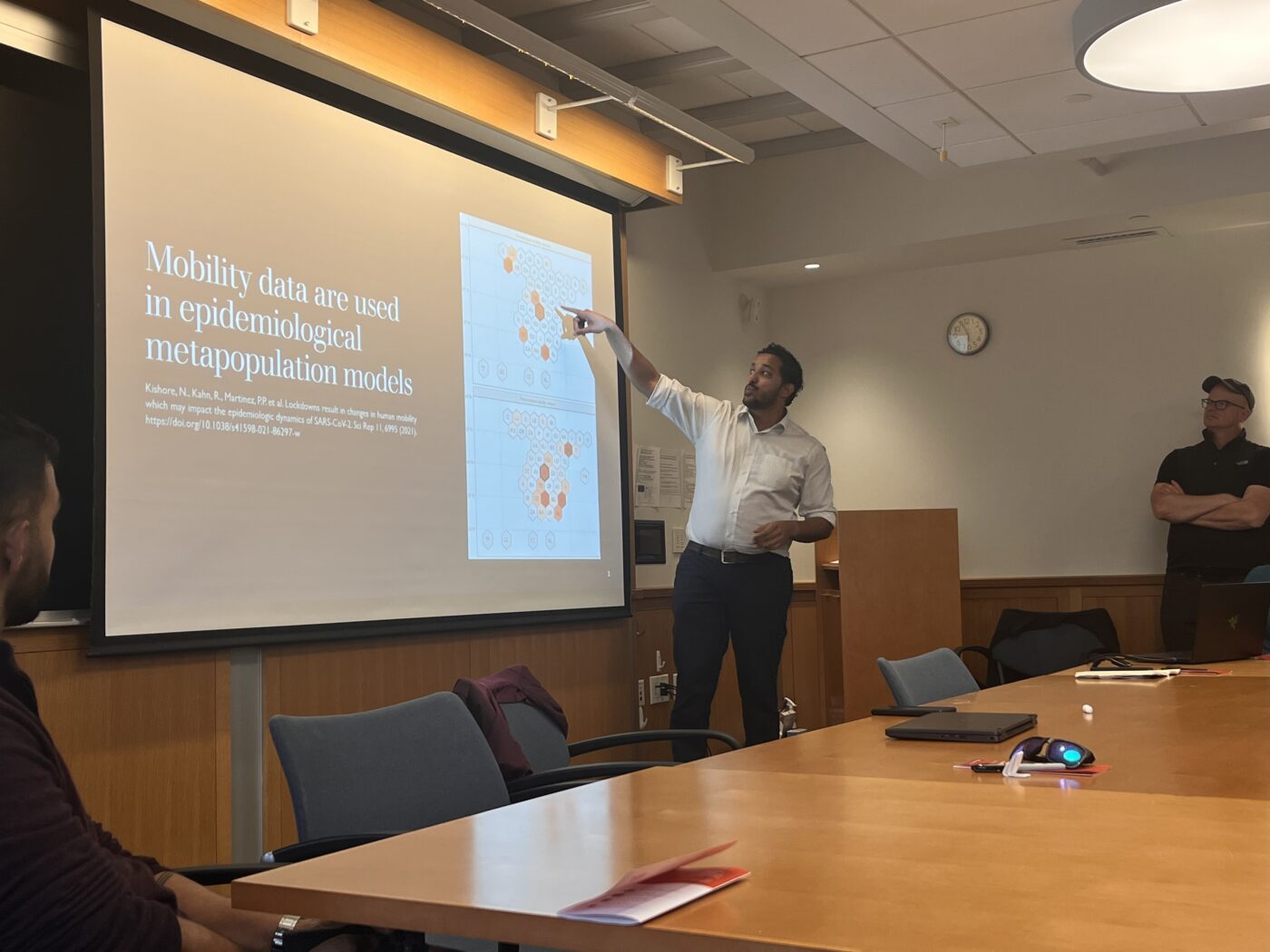
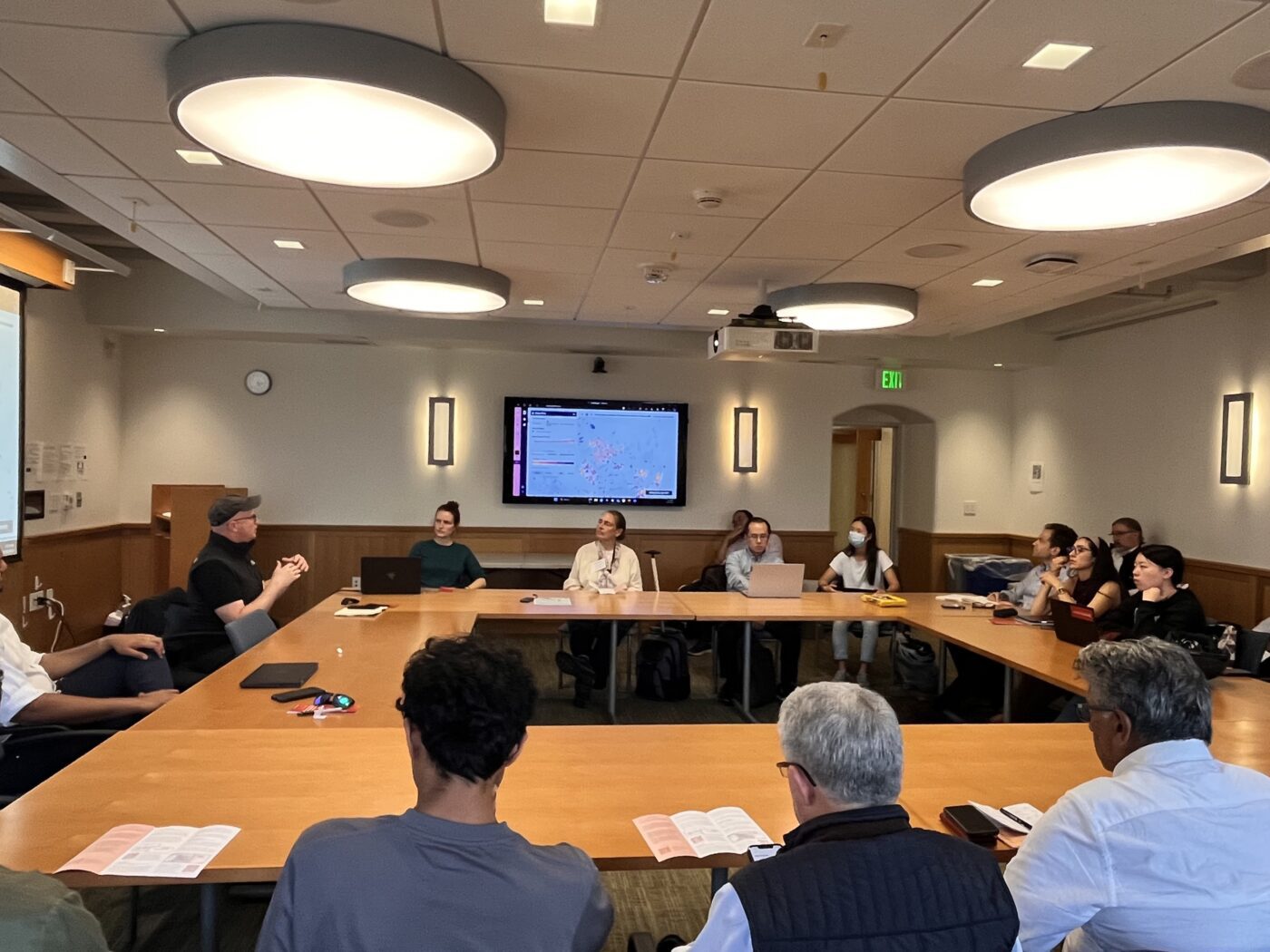
The event featured live demonstrations of the following projects:
Climateverse
A repository offering processed, organized, and easy-to-use datasets that can be queried via generative AI for researchers and policymakers
OpenDP
Working with the OpenDP project, our team tested the application of differential privacy tools on vast human mobility datasets to examine their impact on epidemiological utility.
ReadyMapper
Deployed during a range of global disasters, CrisisReady’s decision support tools allow communities and response agencies to track population movement, vulnerability, and health system status in order to match resource allocation to evolving needs.
Speakers

Natalie Ayers
PhD Candidate, Department of Government, Harvard University
Natalie Ayers, a PhD student in Harvard’s Department of Government, is involved in research at the intersection of quantitative methods and international relations. Affiliated with CrisisReady and the Institute of Quantitative Social Sciences (IQSS) at Harvard, she researches automated data systems for disaster response, is helping develop novel data repositories for policy purposes, and is also contributing to the development of Climateverse. This new AI-powered system curates essential climate-related data for researchers and policymakers eager to propel climate action, especially in South Asia.
Natalie plays a key role in data analysis and reporting during large-scale disasters worldwide using the ReadyMapper reporting system. Her research encompasses using computational methods like geospatial analytics and machine learning to enhance outcomes in conflict settings. Furthermore, she’s committed to leveraging data science for societal benefit and ensuring data equity and accessibility.

Andrew Schroeder
Co-Director, CrisisReady
Vice President of Research and Analysis, Direct Relief
In addition to co-directing CrisisReady, Dr. Andrew Schroeder is the Vice President of Research and Analysis for Direct Relief, where he leads the organization’s work in GIS mapping, epidemiological analysis, and humanitarian informatics.
At CrisisReady, Andrew Schroeder handles situational reporting for global disasters. He shares reports on population movements, community vulnerabilities, and healthcare systems during emergencies with partners like NetHope, the World Bank, United Nations Office for the Coordination of Humanitarian Affairs, United Nations High Commissioner for Refugees, International Federation of Red Cross and Red Crescent Societies, World Health Organization, and the World Food Programme. Additionally, he manages other research projects at CrisisReady.

Satchit Balsari
Co-Director, CrisisReady
Emergency Medicine Physician, Beth Israel Deaconess Medical Center
Assistant Professor, Harvard Medical School
Dr. Satchit Balsari is an assistant professor in emergency medicine at Harvard Medical School and Beth Israel Deaconess Medical Center, and in global health and population at Harvard Chan. His interdisciplinary interests in mobile technology, disaster response, and population health have been informed by his clinical practice in the United States and research in disasters and wars around the world. His research has led to advances in disaster preparedness, post-disaster ascertainment studies, and digital health implementation science in the global south.
At Harvard, he co-directs CrisisReady.io, a research-response network hosted at Harvard and Direct Relief, that promotes data-driven decision-making during public health emergencies. Dr. Balsari is also director of the two-year degree granting Climate and Human Health fellowship at Harvard that trains physicians in research, communications and advocacy on issues at the intersection of climate change and health.

Nishant Kishore
Epidemiologist, Centers for Disease Control and Prevention (CDC)
Dr. Nishant Kishore plays an integral role in the Polio Eradication Branch at the Centers for Disease Control and Prevention (CDC). He is the CEO and Co-Founder of EpiTech Consultants, a firm dedicated to crafting analytic solutions for intricate public health challenges.
In addition to his role at the CDC, he has been instrumental in advancing CrisisReady’s OpenDP project. Nishant earned his PhD in Epidemiology and SM in Biostatistics from the Harvard T.H. Chan School of Public Health in 2020. His academic work centered on integrating mobility and remote sensing data into prevailing modeling structures, notably for understanding SARS-CoV-2 spread and gauging public response to lockdown measures.
Prior to pursuing his PhD, Nishant honed his skills as a data manager and mobile data collection systems developer at the CDC Foundation.
